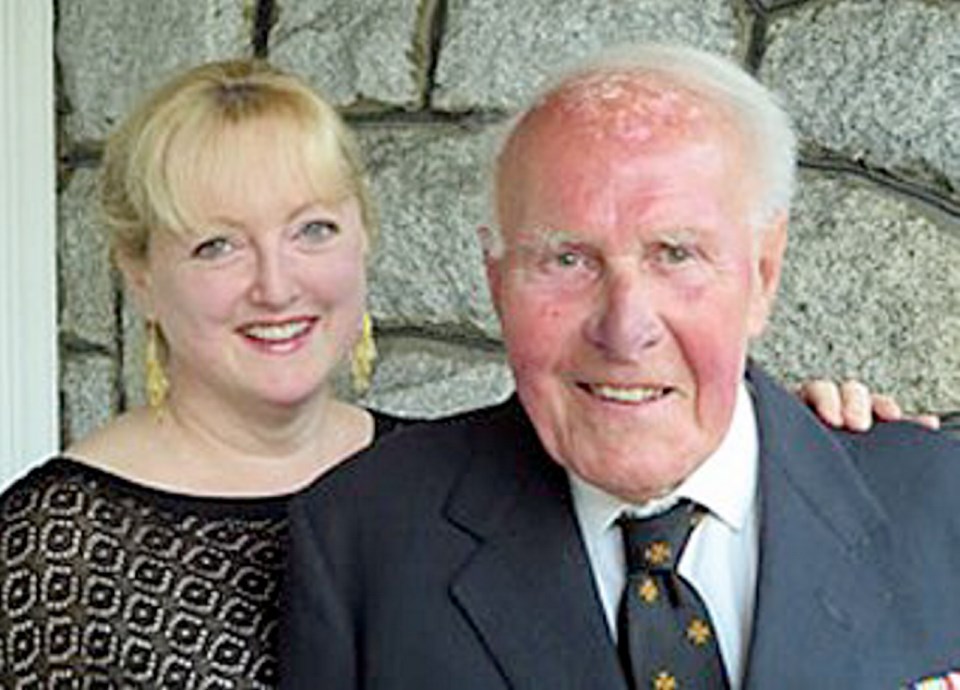 Victoria’s Piet and Patricia Kidd were married 31 years, raised two sons together, were devoted to each other until the day Piet died in April — yet Ottawa won’t give Patricia a penny of the pension money that other veterans’ widows get.
Victoria’s Piet and Patricia Kidd were married 31 years, raised two sons together, were devoted to each other until the day Piet died in April — yet Ottawa won’t give Patricia a penny of the pension money that other veterans’ widows get.
The problem is Piet’s age. He was 63 when they wed, and the military pension plan specifically limits survivor benefits if the marriage came after the veteran turned 60.
The rule, known informally (and somewhat crudely) as the gold diggers clause, dates back to 1901 when it was inserted to prevent young women from marrying aging veterans for their pensions.
The clause isn’t unique to the Armed Forces. Plans covering judges, Mounties and some other federal workers contain similar measures, as do some in the private sector.
To Victoria MP Murray Rankin, the Kidds’ story is an example of rigid rules trumping common sense. The Kidds were married much longer than many other beneficiaries, yet it’s Patricia, 58, who was cut off. “It’s completely wrongheaded,” Rankin says.
The government, though, says it’s not that clear-cut, that the veterans’ plan is relatively generous. Many Canadian pensions won’t pay survivor benefits at all if the marriage occurred after retirement, regardless of age. It’s only because police and military types tend to retire younger than other public servants that the plan extends benefits to the survivors of pensioners who enter relationships up until age 60.
And benefits are available for survivors of those who marry after that — but only if the retiree accepts a greatly reduced pension.
But Rankin and Patricia argue that the clause still creates inequity within the veterans’ plan, the dividing line being an arbitrary age limit. They want the rules changed on behalf of all survivors, not just Patricia.
As it is, those rules don’t allow for couples like the Kidds, whose May-to-September story might not be typical, but was a love story nonetheless.
Patricia’s father and Piet were wartime navy buddies from England who both emigrated and joined the Royal Canadian Navy in 1954. “Piet introduced my father to my mother,” Patricia says.
Patricia’s father was stationed back east, while naval doctor Piet ended up in Victoria. Patricia was 15 when she moved to Victoria with her family and met Piet and his first wife, Vera, in 1973. She considered Vera a friend, and admired Piet. After Vera died in 1981, Patricia, then living in Toronto, began to write Piet. “I was afraid this brilliant man was going to curl up and die.”
Admiration soon turned to something deeper for both of them. They married in 1985, when he was 63 and she just 27. “For two people who love each other, there is no age,” she says. “We had this amazing marriage for 31 years.”
She adores Piet still, speaks glowingly of his character, proudly recites his achievements in hyperbaric medicine research and as the Pacific Command’s chief medical officer.
About a decade ago, after delving into the pension’s age restriction, they were told by a lawyer that their circumstances would make it easy to win survivor benefits on appeal. Except when Patricia approached Veterans Affairs after Piet’s death at age 93 this spring, she was surprised to learn there is no appeals process.
So she’s stuck, tripped up by a rule she finds both ageist and anachronistic. In 1901, a Canadian’s life expectancy was 60. “Now, 60 really is middle-aged,” she says. “Lots of people will marry again over 60.”
Rankin has taken the case to Veterans Affairs Minister Kent Hehr, but fears the pension legislation might not leave Hehr much wriggle room. That’s crazy, Rankin says: Common sense says Ottawa should be able to find a way to give an official the discretion to award at least partial pension to survivors when circumstances warrant it.
He’s cautious, though. “I do see the other side of the coin.” There are financial costs to increasing the obligations of a pension plan. People invoke the name of Anna-Nicole Smith, the 26-year-old bombshell who married 89-year-old oil tycoon J. Howard Marshall in the 1990s. Rankin also hears from Canadians who don’t want federal pension plans — already seen as relatively generous — from growing even more out of sync with those in the private sector.
But as it is, there’s no fairness when a plan awards benefits to someone who married a pensioner when he (it’s usually a he) was 59, yet slams the door if he was 60 when wed, Rankin argues.
“It’s an on-off switch.”



